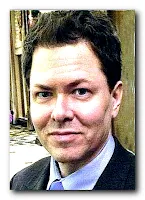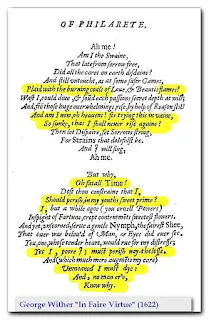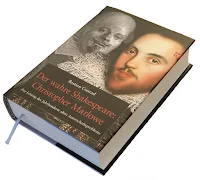Is absurdity even possible to increase?
___________________
 Gary Taylor
Gary Taylor
The Guardian on October 23 reported , that Shakespeare’s collaborative work is even greater than estimated over the last decades. - Using computerised text tool analysis 23 US/english academic Shakespeare scholars have contended that Shakespeare‘s collaboration with other playwrights was far more extensive than has been realized before.
Shakespeare expert Gary Taylor told the Guardian that they underestimated the amount of Shakespeare’s collaborative work: In 1986 8 (>20%) of 39 plays were identified on their title pages as collaborative, in 2016 it were 17 of 44 Plays (>38%)
Henry VI parts 1, 2 and 3 are among those plays that they now believe contain writing by Christopher Marlowe:
Shakespeare expert Gary Taylor told the Guardian that they underestimated the amount of Shakespeare’s collaborative work: In 1986 8 (>20%) of 39 plays were identified on their title pages as collaborative, in 2016 it were 17 of 44 Plays (>38%)
Henry VI parts 1, 2 and 3 are among those plays that they now believe contain writing by Christopher Marlowe:
They had been able to verify Marlowe’s presence strongly and clearly enough.- Gary Taylor: We can now be confident that they [Marlowe & Shakespeare] didn’t just influence each other, but that they worked with each other. "Rivals sometime collaborate“
We have added evidence from phrases that occur in the passage being tested. Marlowe’s works contain many more such parallels than any other playwright,” Taylor added.
How could such an absurd/ bizarre assumption of "Shakespeare as a teamplayer"(s.Blog 448) arise, derived exclusively on statistical contextual analysis. - Is absurdity even possible to increase?
We have added evidence from phrases that occur in the passage being tested. Marlowe’s works contain many more such parallels than any other playwright,” Taylor added.
How could such an absurd/ bizarre assumption of "Shakespeare as a teamplayer"(s.Blog 448) arise, derived exclusively on statistical contextual analysis. - Is absurdity even possible to increase?















































